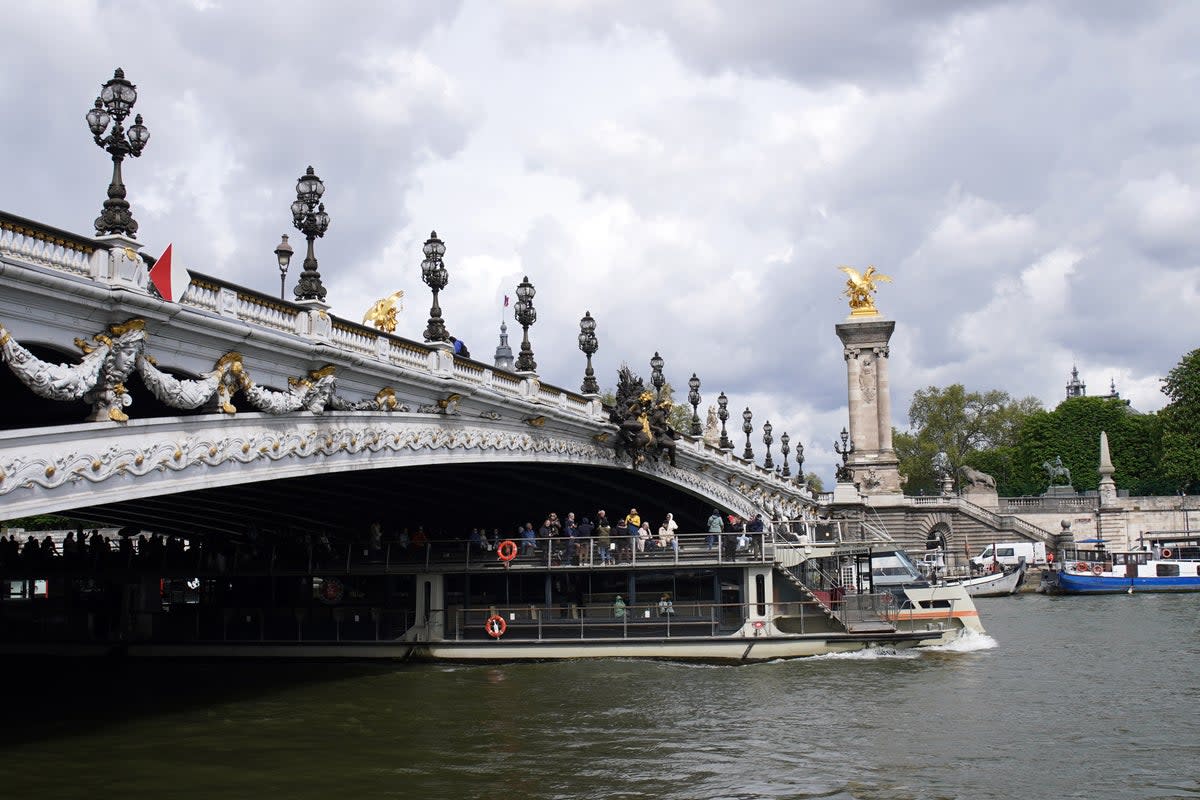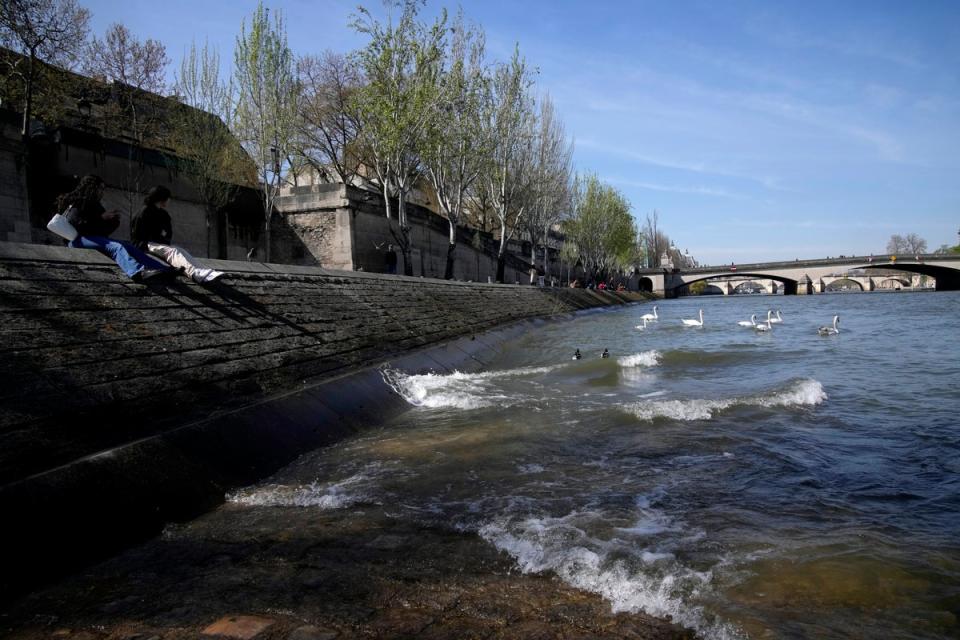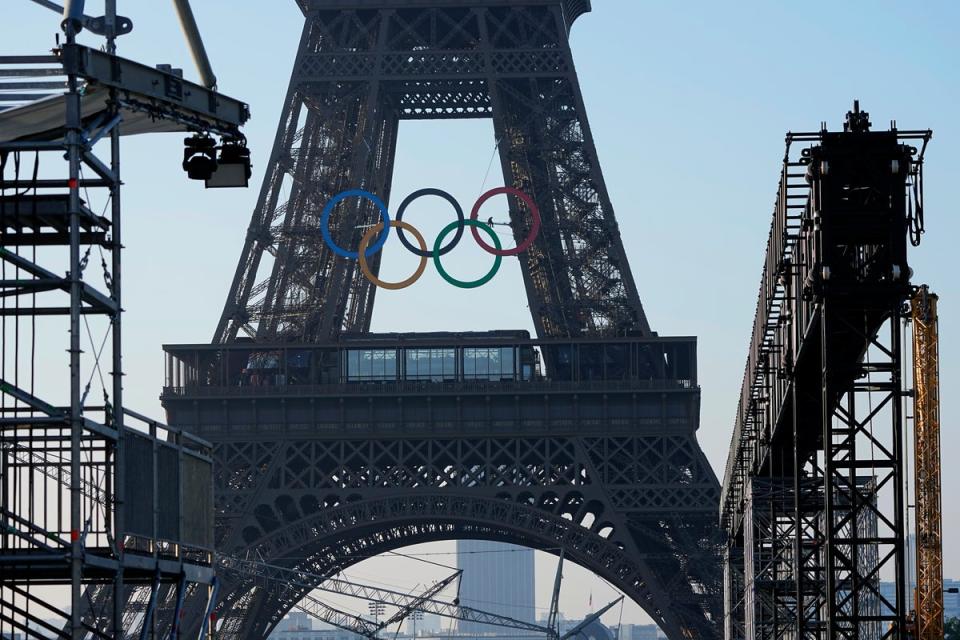Why Parisians are planning ‘s*** flashmob’ in protest against filthy River Seine ahead of Olympics

France’s revolutionary spirit is being re-lit by the Olympic flame as it has emerged Parisians are planning an outrageous manner of protest ahead of the games this summer.
Renowned for their creative demonstrations, the French could out-do themselves as angry residents protest their government’s spending on the world’s stage.
Parisians have expressed their discontent for the event as they say much-needed funds are being wasted on the games while neighbourhoods in the city struggle with poverty.
One of the biggest controversies is the French government’s plan to host events in the River Seine itself - despite the dirty water having been un-swimmable for a century.
Authorities have allocated £1.2 billion to the state-backed plan to clean up the Seine ahead of the world’s top athletes taking a dip.

Despite the water still being too dirty to swim in just weeks away from the event, President Emmanuel has vowed to swim in the river himself on June 23 to prove the initiative’s success.
When asked if he would swim in the Seine, Macron told reporters: “You bet I will.”
In response, creative frenchmen have devised a plan to soil their leaders’ plan - literally.
Parisians have vowed to fill the river with human faeces on the day Emmanuel and the French mayor Anne Hidalgo take to the water in what they dubbed a “s*** flashmob”.

The hashtag #JeChieDansLaSeineLe23Juin, which translates to “I s*** in the Seine on June 23” began trending at the end of last month and has since gained traction across social media.
The initial post on X has gained over half a million impressions and posts on TikTok spreading the word have garnered well over a million views.
As news of the protest, memes such as AI generated pictures of toilets along the Seine and Macron standing on a bridge covered in faeces sprung up across French X.
🚨🇨🇵 FLASH - Pour lutter contre l'opération #JeChieDansLaSeineLe23Juin, la ville de #Paris a décidé de placer des toilettes en bord de Seine. pic.twitter.com/vzOlGCzKu6
— Pediavenir (@Pediavenir) May 23, 2024
Upon the hashtag gaining traction, website dedicated to the campaign has cropped up with a handy tool to inform people exactly what time they should empty their bowels into the river based on their distance away from Paris.
The message on the websites homepage reads: “Because after putting us in s*** it is up to them to bathe in our s***”

Olympic Open water and triathlon events are scheduled to take place in the river during the games from 26 July to 11 August as the city receives a facelift to accommodate more than 10,500 athletes from around the world.
Organisers have made clear that there is no Plan B if the water quality does not meet European safety standards during the two weeks of the games.
Swimming in the river been barred on safety grounds since 1923 - a year before the city last hosted the Olympic Games.
Concerns that the races will have to be postponed are growing each day as the river continues to fail water quality tests and after heavy rainfall in May. One reading for E.Coli near the triathlon start line was more than three times the required level.
The river is just one point of contention as the city gears up to host the event.
Last week it was revealed that Paris authorities have removed thousands of homeless people from the streets ahead of the Olympic Games in what campaigners have called a “clean-up” drive of those “considered undesirable”.
Paul Alauzy, of health monitoring charity Médecins du Monde, described it as “social cleansing” of the most vulnerable people in efforts to “appear in the most flattering light possible” for the Olympics.


